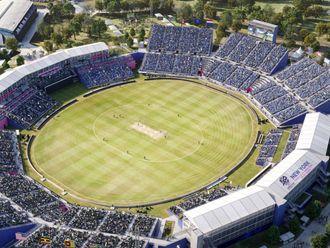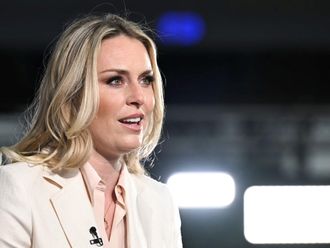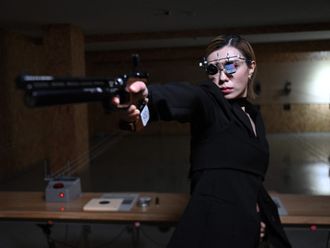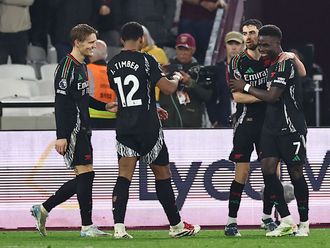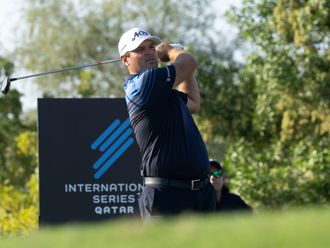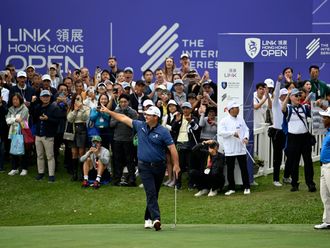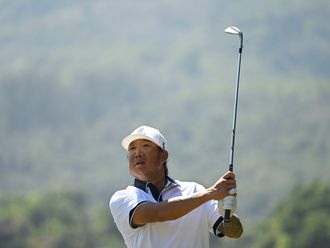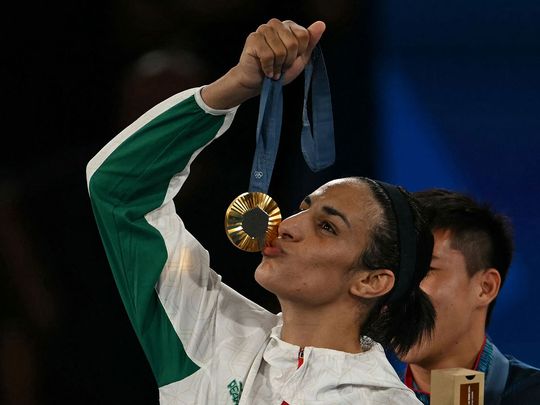
Algerian boxer Imane Khelif defied a major gender controversy to win gold at the Paris Olympics on Friday as the United States' star sprinters flew and then flopped on the track.
Khelif, 25, claimed a unanimous points decision win over China's Yang Liu in the women's 66kg final for her first Olympic medal.
"I'm very happy. For eight years this has been my dream and I'm now the Olympic champion and gold medallist," said Khelif.
"I've worked for eight years, no sleep, eight years tired. Now I'm Olympic champion."
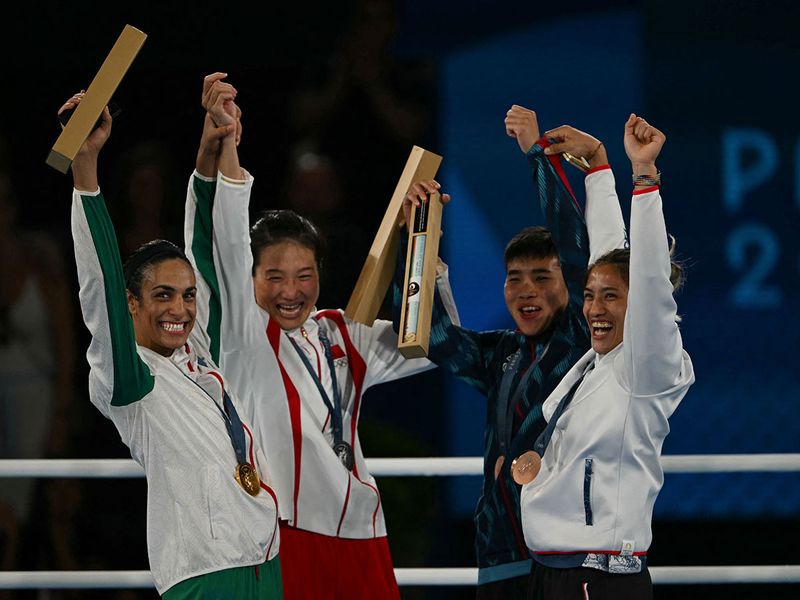
Khelif, along with Taiwan's Lin Yu-ting, who fights for gold on Saturday, was disqualified from last year's world championships after failing gender eligibility testing.
The International Olympic Committee (IOC), which runs the sport in Paris, however, insist the two fighters were born and raised as women, and have passports saying that.
"I want to thank all the people who have come to support me," said Khelif, after the final at Roland Garros, the home of French tennis.
"All the people from Algeria and all the people at my base. I want to thank all the team, my coach. Thank you so much."
Unanimous decision
There were large numbers of Algerian fans at the 15,000-seated Court Philippe Chatrier, usually home to Grand Slam tennis but instead there to witness one of the most controversial athletes at the Games.
Standing 1.79 metre (5ft 9in), Khelif had enjoyed a height and strength advantage over the three opponents she comfortably dismantled on her way to the final.
Yang was a different proposition, the 32-year-old being nearly as tall and also having pedigree as a world champion.
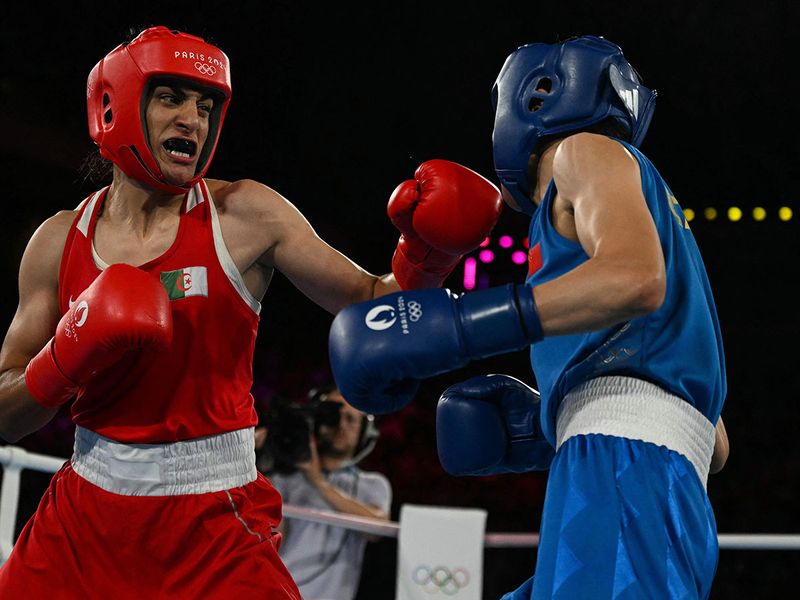
Loud cheers went up when the 25-year-old Khelif entered the arena, shadow-boxing her way towards the ring as chants of "Imane, Imane" rang out.
Khelif dictated most of the first round from the centre of the ring and unloaded a flurry of punches on Yang two-thirds of the way through to take the early initiative.
The second round started in the same way, with Khelif's punches appearing to carry more snap, power and menace.
The Algerian was ahead on all the judges' scorecards heading into the third and final round, and she just needed to avoid serious trouble to claim gold.
The two embraced at the bell, and after Khelif's comprehensive victory was confirmed, she was paraded around the arena on the shoulders of an Algerian team member.
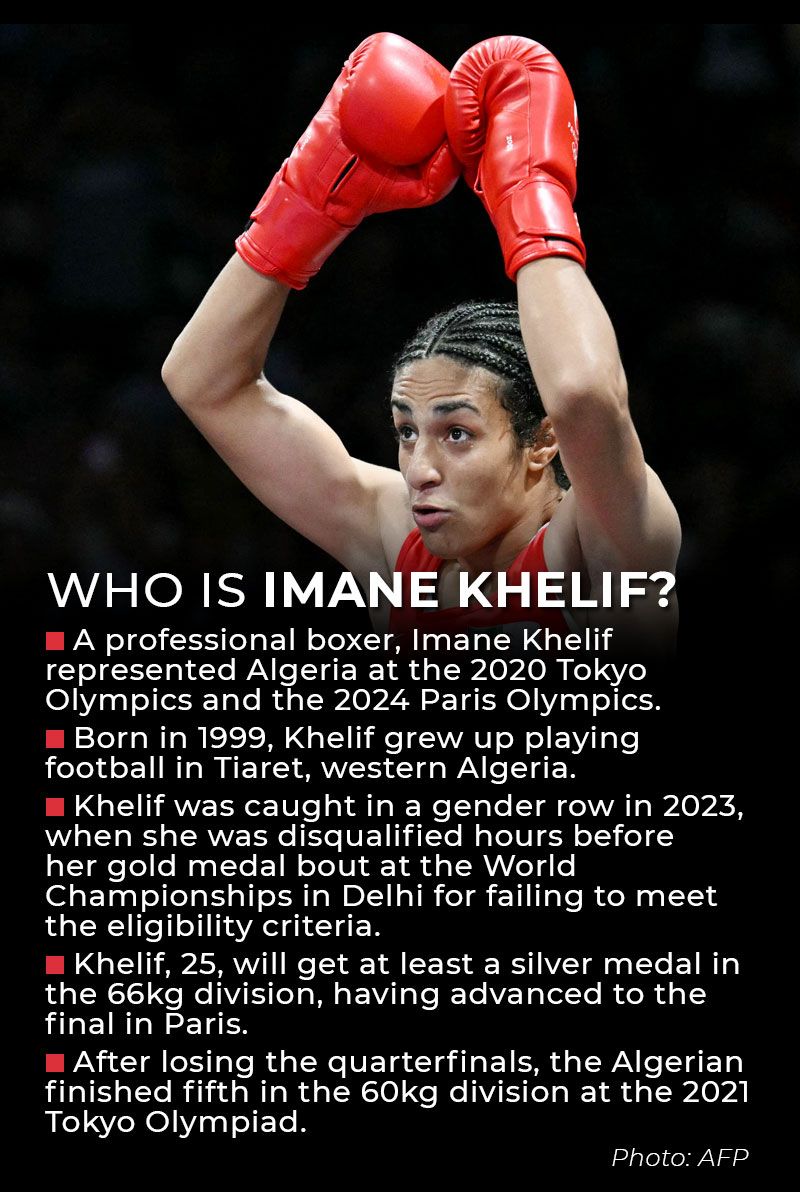
Khelif and Lin both fought at the Tokyo Olympics three years ago but there was no controversy at the time and neither won a medal.
Both were thrown out of last year's world championships, which was run by the Russian-led International Boxing Association (IBA), but were cleared to compete in Paris.
The International Olympic Committee (IOC) has overseen the sport at the Games because of concerns over the IBA's running of boxing, including questions over its finances, ethics and judging of bouts.
The gender controversy ignited in the French capital when Khelif defeated Angela Carini in 46 seconds in her opening bout, the Italian reduced to tears and abandoning the fight after suffering a badly hurt nose.
The IBA's Kremlin-linked president Umar Kremlev claimed at a chaotic press conference this week that Khelif and Lin had undergone "genetic testing that shows that these are men".
The IOC has leapt to the defence of both boxers, with president Thomas Bach saying they were born and raised as women, and have passports saying that.
Neither is known to identify as transgender, and they have enjoyed strong support back home.
Hometown erupts in joy
The poor, rural hometown of Algerian boxer Imane Khelif erupted in joy as she won gold at the Paris Olympics in the face of a major gender controversy.
Cheers of Khelif's name and the country's famous chant "one two three, viva l'Algerie" broke out in Biban Mesbah, a town of around 6,000 people.
"It's Algeria's victory," her father, Omar Khelif, told reporters as he watched the fight on a giant screen along with the rest of the village around 300 kilometres (185 miles) southwest of Algiers.
Villagers fired shots into the air in honour of 25-year-old Khelif's first Olympic medal following her victory over Yang Liu in the women's 66kg final.
The jubilation also spread to the capital Algiers, where crowds invaded the city centre, celebrating the victory with fireworks and a chorus of car horns.
Algerian President Abdelmadjid Tebboune joined the celebrations on social media site X, saying: "We are all proud of you, Olympic champion Imane, your victory today is Algeria's victory and your gold is Algeria's gold."
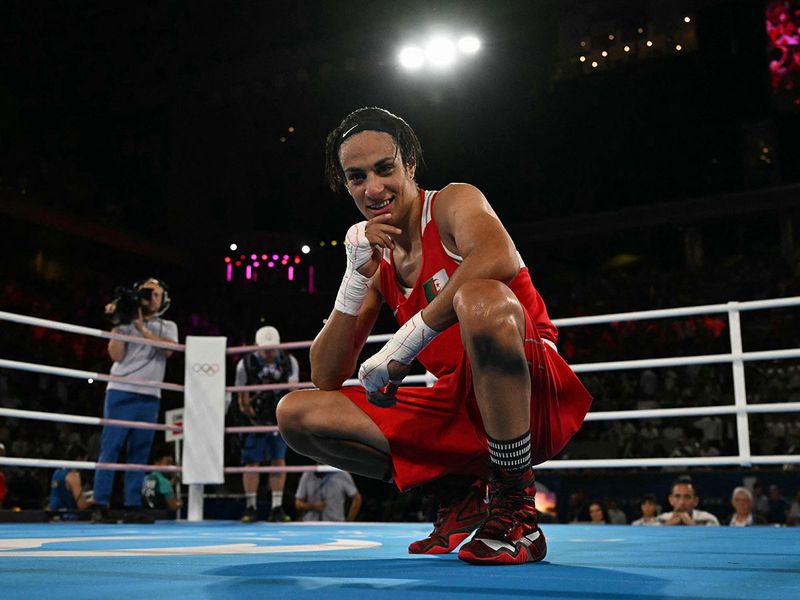
'Strong woman'
Ahead of Khelif's fight, hundreds of volunteers turned out in Biban Mesbah to help prepare for the big night.
Despite scorching temperatures of 46 degrees Celsius (114 degrees Fahrenheit), the men carried out a vast clean-up operation while dozens of women were busy cooking a giant couscous.
"We agreed to give the village a new face and breathe new life into it, with the victory of Imane Khelif," her cousin Mounir Khelif, 36, told AFP.
"We all helped each other, some bringing couscous, others oil and vegetables, while those who couldn't help with provisions helped with the preparation," said Amina Saadi, 52, a mother of six.
"We are all united behind Imane Khelif, who has honoured Algeria, that's the least we can offer her", she said.
The boxer has been the victim of a social media hate campaign that portrays her as a "man fighting women".
"I'm a strong woman with special powers. From the ring, I sent a message to those who were against me," she said Friday after her win.
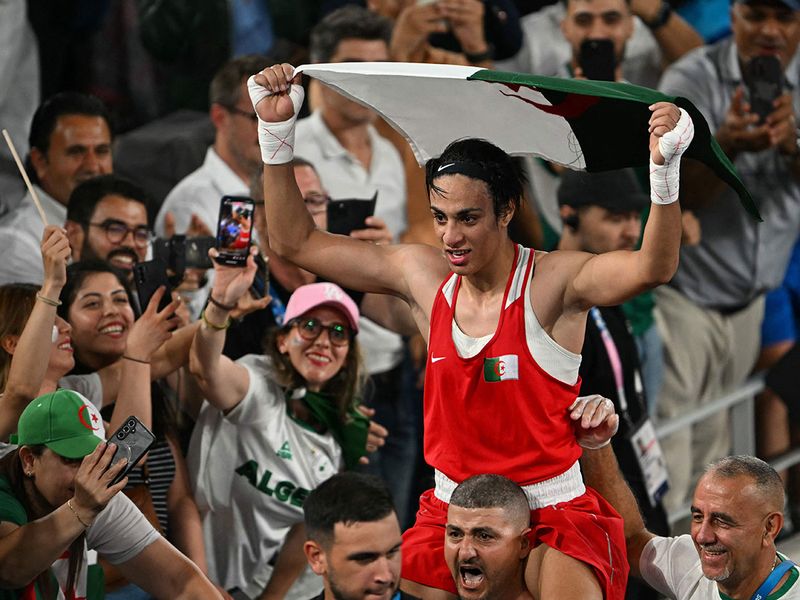
'Conservative family'
The gender controversy ignited in the French capital when Khelif defeated Angela Carini in 46 seconds in her opening bout, the Italian reduced to tears and abandoning the fight after suffering a badly hurt nose.
Algerians from all walks of life have showed their solidarity with Khelif, irritated that her father was forced to show her birth certificate to journalists to prove she was born a girl.
Khelif's international career took off with her participation at the Covid-delayed Tokyo Olympics in 2021, where she finished fifth in her weight class.
In 2023, she made it to the semi-finals of the world championships in New Delhi.
But then she was disqualified following gender eligibility testing by the International Boxing Association, which is not recognised by the International Olympic Committee and is not running the sport in Paris.
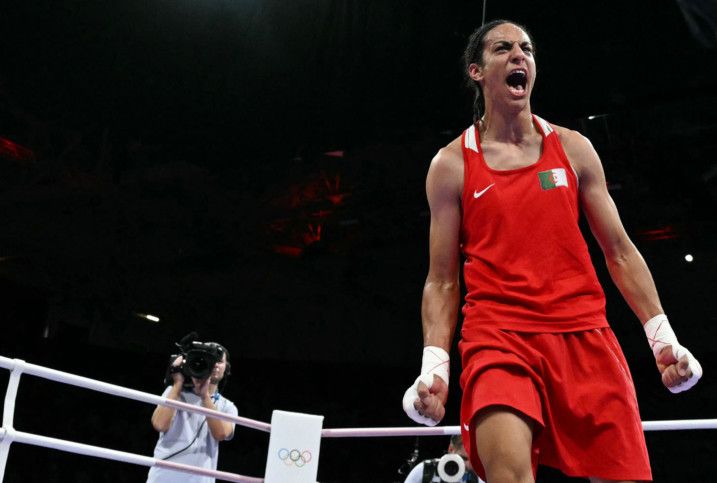
From a family of limited means, she spoke before the Games of the difficulty of her life in "a village of conservative people" in semi-desert surroundings.
Imane said that her father initially found it difficult to accept her boxing.
"I came from a conservative family. Boxing is not a widely practised sport by women, especially in Algeria," she told Canal Algerie a month before the Games, smiling readily and her voice soft.
In an interview with UNICEF, she said she used to sell scrap metal and her mother sold homemade couscous to pay for bus tickets to a nearby town.



